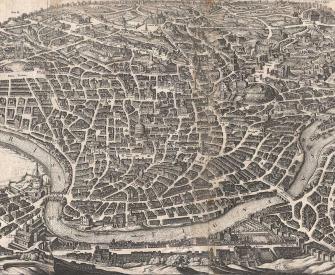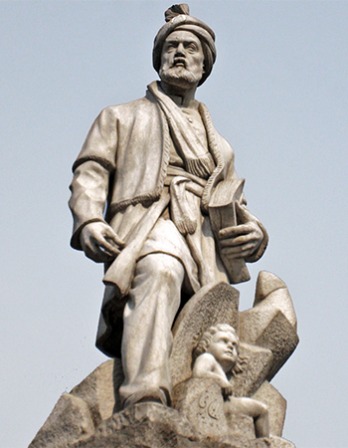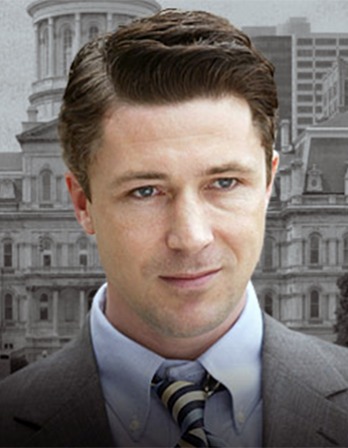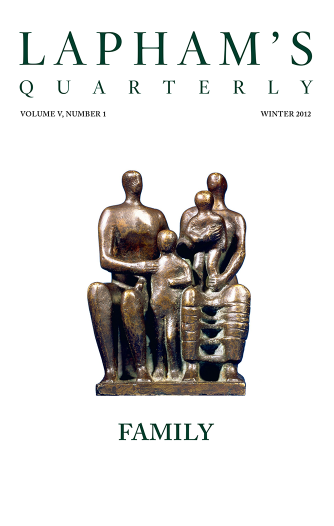The nature of God is a circle, of which the center is everywhere and the circumference is nowhere.
—Empedocles, 450 BCIniquity
The final testament of a French priest.
Don’t fool yourselves, my dear friends, open your eyes to everything that your pious morons or mocking, self-interested priests and scholars are eager to tell you and make you believe on the false pretext of the infallible certainty of their so-called holy and divine religion.
You’re no less seduced or less abused than those who are the most seduced and most abused; you’re no less in error than those who are the most deeply plunged. Your religion is no less vain or less superstitious than any other; it’s no less false in its principles, no less ridiculous and absurd in its dogma and maxims. You’re no less idolatrous than those who you yourselves accuse and condemn of idolatry—the idols of pagans are different from yours only in name and shape. In short, everything that your priests and scholars preach to you with so much eloquence concerning the grandeur, excellence, and sanctity of the mysteries they make you worship, everything they tell you so seriously about the certainty of their so-called miracles and everything they recite with so much zeal and assurance concerning the grandeur of the rewards of heaven and the terrible punishments of hell, are in fact only illusions, errors, lies, fictions, and impostures invented at first by the shrewd and crafty politicians, continued by the seducers and imposters, then received and blindly believed by the ignorant and vulgar people—and finally maintained by the rulers and sovereigns of the earth who encourage the abuses, errors, superstitions, and impostures and even authorize them by their laws in order to keep a tight rein on the community of men and make them do whatever they want.
That, my dear friends, is how those who governed the people and who still govern now presumptuously and with impunity abuse the name and authority of God to make themselves feared, obeyed, and respected rather than to fear and serve the imaginary God whose power they terrify you with. That’s how they abuse the specious names of piety and religion to make the weak and ignorant believe whatever they want them to. And finally, that’s how they establish everywhere on earth a detestable mystery of lies and iniquity instead of working, as they should, to establish everywhere the reign of peace and justice as well as truth—a reign whose virtues would make all people happy and content on earth.
I say they establish everywhere a mystery of iniquity because all the hidden motives of the shrewdest politicians—as well as the maxims and ceremonies of the most pious of religion—are really only mysteries of iniquity. I say mysteries of iniquity for all the poor people who are the miserable dupes of all the mummeries of religions, as well as the puppets and hapless victims of the power of the rulers. But for those who govern the consciences or who are provided with good benefices, it’s like a gold mine or a golden fleece, like a cornucopia that brings forth all kinds of goods at their pleasure. And this is what leads all the good gentlemen to amuse themselves and have all kinds of good times, while the poor people, abused by the errors and superstitions of religion, groan sadly, needily, and yet peaceably under the oppression of the rulers. And while they patiently suffer their pains, while they vainly enjoy praying to gods and saints who don’t hear them, while they enjoy the vain devotions, while they repent their sins, and finally, while these poor people are working and worn out day and night in their jobs, sweating blood and tears to earn a paltry living for themselves and lavishly supply pleasures and satisfactions for those who are making them so unhappy in life.
Ah! My dear friends, if you really knew the vanity and folly of the errors that you support on the pretext of religion, and if you knew how unjustly and how indignantly they abuse the authority they’ve usurped from you on the pretext of governing you, you’d certainly have nothing but contempt for everything they make you worship and respect, and you’d have nothing but hatred and indignation for everyone who abuses you, who governs you so badly and who treats you so shamefully. I remember the wish of a man a while back who had no culture or education, but who, to all appearances, didn’t lack the common sense to pass sound judgments on all these detestable abuses and tyrannies. In his wish and in his way of expressing his thought it seemed that he saw rather far and penetrated rather deeply into the detestable mystery of iniquity of which I just spoke, and recognized very well the perpetrators and instigators. His wish was: all the rulers of the earth and all the nobles be hanged and strangled with the guts of priests.
This expression may seem hard, rude, and shocking, but you must admit that it’s candid and simple. It’s concise but expressive, and it expresses very well in a few words everything these kinds of men deserve. As for myself, my dear friends, if I could make a wish—and I wouldn’t fail to do so, if it could have any effect—I would wish to have the arm, strength, courage, and body of Hercules to purge the world of all vices and iniquities, to have the pleasure of bludgeoning all the monster tyrants with their crowned heads and all the other monsters and ministers of errors and iniquity who make all the people of the earth groan so piteously.
Don’t think, my dear friends, that I am driven by any particular desire for vengeance or any motive of animosity or any personal interest. No, my dear friends, it’s not at all passion that inspires these sentiments or makes me speak and write in this way. It’s really only the inclination and love that I have—on the one hand, for justice and truth, which I see so indignantly oppressed, and on the other hand, the aversion I naturally have of vice and wickedness, which I see so insolently reigning everywhere. We can’t have too much hatred or disgust for the people who everywhere cause such detestable evils and who abuse men so universally.

Jean Meslier
From Testament. According to Voltaire, who was deeply influenced by his French predecessor’s critique of religion, Meslier while at the seminary “devoted himself to the system of Descartes.” The son of a serge weaver, he spent his entire adult life in the priesthood. Meslier’s Testament, consisting of three manuscripts with 366 pages each, was only discovered upon his death at the age of fifty-five in 1733.




